Nissan Leaf enhanced vision: Nissan continue to promote new tech features on the upcoming 2018 Nissan Leaf. Along with longer range and zero emissions, a new video says that it will have enhanced  vision that will give the driver a better sense of what’s going on around the electric car. That could tie well into the Pro Pilot Assist features announced earlier. There’s also the e-Pedal, allowing the driver to do everything from one pedal. The Leaf will be coming out first in the U.S. on Sept. 5 with the world launch taking place in Japan the next day.
vision that will give the driver a better sense of what’s going on around the electric car. That could tie well into the Pro Pilot Assist features announced earlier. There’s also the e-Pedal, allowing the driver to do everything from one pedal. The Leaf will be coming out first in the U.S. on Sept. 5 with the world launch taking place in Japan the next day.
Audi EVs with solar panels: Audi will be working with a partner to rollout electric vehicles with solar panels on their roofs for extended range. Through an alliance with Alta Devices, a subsidiary of Chinese solar company Hanergy, thin-solar cells will be added to roofs that can power the car’s air-conditioning system and seat heaters. A prototype is scheduled to be completed by the end of the year. Later versions will cover the entire rood and eventually provide power for the battery pack driving the electric car. Audi will be competing with Toyota and Panasonic bringing solar panels to the Toyota Prius Prime plug-in hybrid. Audi is hard at work developing battery electric vehicles using its e-tron drive train.
CALSTART symposium speakers: CALSTART’s 25th Anniversary Symposium is coming up on Oct. 24-25 at the Pasadena Convention Center, with an impressive list of speakers being announced. 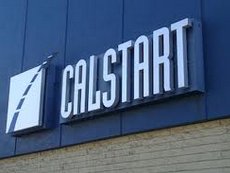 Speakers include: Mary Nichols, Chair, California Air Resources Board; Diarmuid O’Connell, Vice President, Business Development, Tesla; Caroline Choi, Senior Vice President of Regulatory Affairs, Southern California Edison; and Scott Phillippi, Senior Director of Maintenance & Engineering, International Operations, UPS. The hotel block is filling up, so it would be a good idea to register soon.
Speakers include: Mary Nichols, Chair, California Air Resources Board; Diarmuid O’Connell, Vice President, Business Development, Tesla; Caroline Choi, Senior Vice President of Regulatory Affairs, Southern California Edison; and Scott Phillippi, Senior Director of Maintenance & Engineering, International Operations, UPS. The hotel block is filling up, so it would be a good idea to register soon.

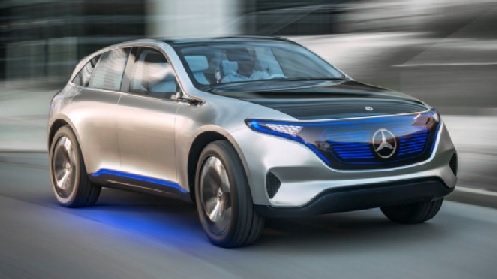 One will be an electric compact car could be the new previously announced EQC sedan that’s slated to start production in 2019. The Mercedes-Benz GLC F-Cell EQ Power will be a fuel cell plug-in hybrid that makes its debut at the car show as a pre-series model. It comes from the EQ Power sub-brand added to its EQ lineup earlier this year. The Mercedes-AMG Project One, a high-performance hypercar, will be getting 1000-plus horsepower and will use Formula 1 hybrid drive technology. There will only be 300 units available. While non-electric, the company will also be showing its first premium pickup truck, the X-Class.
One will be an electric compact car could be the new previously announced EQC sedan that’s slated to start production in 2019. The Mercedes-Benz GLC F-Cell EQ Power will be a fuel cell plug-in hybrid that makes its debut at the car show as a pre-series model. It comes from the EQ Power sub-brand added to its EQ lineup earlier this year. The Mercedes-AMG Project One, a high-performance hypercar, will be getting 1000-plus horsepower and will use Formula 1 hybrid drive technology. There will only be 300 units available. While non-electric, the company will also be showing its first premium pickup truck, the X-Class. will delve into the development, manufacturing, marketing, and servicing of an all-electric vehicle line for the China market. The move will tap into China’s “new energy vehicle” market for plug-in hybrid and all-electric vehicles. The Detroit automakers said that China will have at least six million NEVs sold per year starting in 2025, and that four million of them will be battery-electric vehicles. Zotye Auto sold more than 16,000 electric vehicles in China through July of this year, a 56 percent increase year-over-year.
will delve into the development, manufacturing, marketing, and servicing of an all-electric vehicle line for the China market. The move will tap into China’s “new energy vehicle” market for plug-in hybrid and all-electric vehicles. The Detroit automakers said that China will have at least six million NEVs sold per year starting in 2025, and that four million of them will be battery-electric vehicles. Zotye Auto sold more than 16,000 electric vehicles in China through July of this year, a 56 percent increase year-over-year.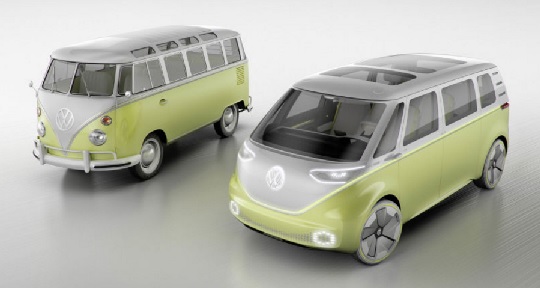 travelers who loved their old VW microbuses, it’s taking the design shape of one of these classic models. Announced Saturday at the Pebble Beach Concours d’Elegance in California, VW CEO Herbert Diess said the demand has been strong since the initial unveiling of the concept earlier this year at the Detroit Auto Show – coming through a lot of letters and emails. “The Microbus has long been part of the California lifestyle. Now we’re bringing it back by reinventing it as an electric vehicle,” he said.
travelers who loved their old VW microbuses, it’s taking the design shape of one of these classic models. Announced Saturday at the Pebble Beach Concours d’Elegance in California, VW CEO Herbert Diess said the demand has been strong since the initial unveiling of the concept earlier this year at the Detroit Auto Show – coming through a lot of letters and emails. “The Microbus has long been part of the California lifestyle. Now we’re bringing it back by reinventing it as an electric vehicle,” he said. leading a lobbying drive to change the way the Environmental Protection Agency views and enforces the biofuels blend mandate. Valero and other oil refiners have taken a costly hit in recent years from the federal Renewable Fuel Standards (RFS) the 10% ethanol blend in gasoline. Valero had to spend about $750 million last year buying RFS credits, according to the company’s securities filings. The company wants the rule to be revised so that the “point of obligation” moves over to retailers and shippers instead of oil refiners. Their coalition has brought in billionaire Carl Icahn, owners of the CVR Energy refiner and who’s served as a special advisor to Trump since his election. Icahn resigned Friday as a Trump advisor after taking a lot of pressure under claims he had a conflict of interests while playing this role.
leading a lobbying drive to change the way the Environmental Protection Agency views and enforces the biofuels blend mandate. Valero and other oil refiners have taken a costly hit in recent years from the federal Renewable Fuel Standards (RFS) the 10% ethanol blend in gasoline. Valero had to spend about $750 million last year buying RFS credits, according to the company’s securities filings. The company wants the rule to be revised so that the “point of obligation” moves over to retailers and shippers instead of oil refiners. Their coalition has brought in billionaire Carl Icahn, owners of the CVR Energy refiner and who’s served as a special advisor to Trump since his election. Icahn resigned Friday as a Trump advisor after taking a lot of pressure under claims he had a conflict of interests while playing this role.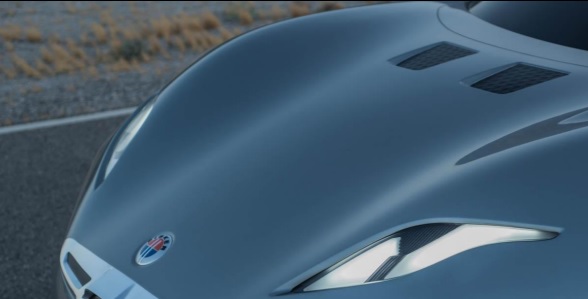 compete directly with the Tesla Model S and Faraday Future FF 91. Technology features include an energy dense battery pack that can be charged in just nine minutes, LiDAR for Level 4 autonomous driving, and a range that Fisker claims will go beyond 400 miles.
compete directly with the Tesla Model S and Faraday Future FF 91. Technology features include an energy dense battery pack that can be charged in just nine minutes, LiDAR for Level 4 autonomous driving, and a range that Fisker claims will go beyond 400 miles. test drive. Nissan is the official sponsor of the event for the third straight year. “The timing couldn’t be better. Bringing LEAF to some of the most enthusiastic EV advocates just days after its global debut is the perfect way to kick things off for this technology-packed car,” said Brian Maragno, director, Nissan EV Marketing and Sales Strategy.
test drive. Nissan is the official sponsor of the event for the third straight year. “The timing couldn’t be better. Bringing LEAF to some of the most enthusiastic EV advocates just days after its global debut is the perfect way to kick things off for this technology-packed car,” said Brian Maragno, director, Nissan EV Marketing and Sales Strategy.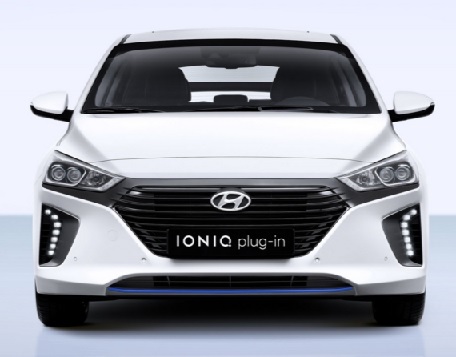 which has gone up to 31 eco-friendly vehicles coming out by 2020, up from the previous goal of 28. The company announced today that one of its new EVs will go 500 kilometers (311 miles) per charge when it comes out after 2021. A small electric SUV will have a driving range of 390 km (about 242 miles) will come out during the first half of next year. The company also announced that it will be launching a hydrogen fuel cell vehicle that can travel more than 580 kilometers (360 miles) after being fueled. The second-generation fuel cell SUV will be coming out early next year. Hyundai said it be going 40% farther than its first-generation fuel cell vehicle, the Tucson ix FCEV. So far, the green car campaign has been led by the Ioniq hybrid, all-electric, and upcoming plug-in hybrid version.
which has gone up to 31 eco-friendly vehicles coming out by 2020, up from the previous goal of 28. The company announced today that one of its new EVs will go 500 kilometers (311 miles) per charge when it comes out after 2021. A small electric SUV will have a driving range of 390 km (about 242 miles) will come out during the first half of next year. The company also announced that it will be launching a hydrogen fuel cell vehicle that can travel more than 580 kilometers (360 miles) after being fueled. The second-generation fuel cell SUV will be coming out early next year. Hyundai said it be going 40% farther than its first-generation fuel cell vehicle, the Tucson ix FCEV. So far, the green car campaign has been led by the Ioniq hybrid, all-electric, and upcoming plug-in hybrid version.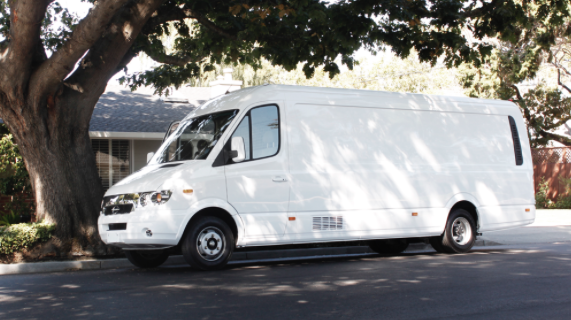 all-electric commercial vans will start being delivered later this year. The company is co-owed by Hong Kong-based FDG Electric Vehicles Limited. FDG owns other EV companies, including Prevok, a Chinese joint venture with Smith Electric Vehicles. Chanje will tap into FDG’s EV and lithium ion battery manufacturing resources. The large electric van will be sold to fleets “at a previously unavailable scale and price,” and will be “purpose-built to be a long-life truck.”
all-electric commercial vans will start being delivered later this year. The company is co-owed by Hong Kong-based FDG Electric Vehicles Limited. FDG owns other EV companies, including Prevok, a Chinese joint venture with Smith Electric Vehicles. Chanje will tap into FDG’s EV and lithium ion battery manufacturing resources. The large electric van will be sold to fleets “at a previously unavailable scale and price,” and will be “purpose-built to be a long-life truck.”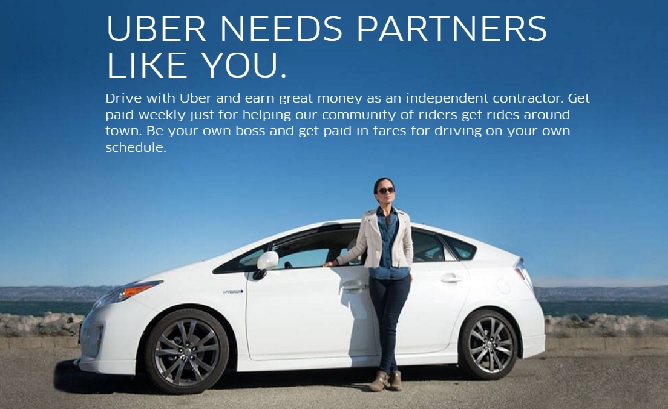 University of Michigan Transportation Research Institute, Texas A&M Transportation Institute, and Columbia University. Research was done in Austin, Texas, where ride-hail services like Uber and Lyft pulled services last year due to a local ordinance. The study found that 41% of those surveyed turned to their own vehicle after Uber and Lyft left the market; and 9% actually bought an additional car for their transportation needs. Three percent switched over to public transit; and 42% went over to another, smaller transportation networking company.
University of Michigan Transportation Research Institute, Texas A&M Transportation Institute, and Columbia University. Research was done in Austin, Texas, where ride-hail services like Uber and Lyft pulled services last year due to a local ordinance. The study found that 41% of those surveyed turned to their own vehicle after Uber and Lyft left the market; and 9% actually bought an additional car for their transportation needs. Three percent switched over to public transit; and 42% went over to another, smaller transportation networking company.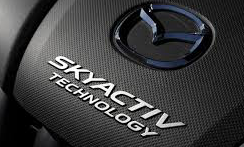 gnition. That will bring 20% to 30% more fuel efficiency than current models on the market with Mazda’s Skyactiv technology. The corporate sustainability campaign will shoot for 2019 to roll out the new Skyactiv-X and its first electric vehicle. That could be coordinated with its Toyota alliance for jointly developing EVs. Sustainable Zoom-Zoom is structured around reducing corporate carbon dioxide emissions, well-to-wheel, 50% by 2030 and 90% by 2050.
gnition. That will bring 20% to 30% more fuel efficiency than current models on the market with Mazda’s Skyactiv technology. The corporate sustainability campaign will shoot for 2019 to roll out the new Skyactiv-X and its first electric vehicle. That could be coordinated with its Toyota alliance for jointly developing EVs. Sustainable Zoom-Zoom is structured around reducing corporate carbon dioxide emissions, well-to-wheel, 50% by 2030 and 90% by 2050.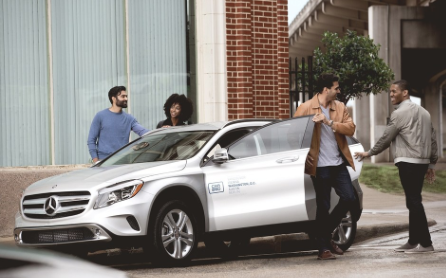 increased 40% year-over-year in the first half of 2017 compared to a year prior. That’s taking place at 11 North American locations with 4.5 million trips taken so far this year. Members are spending 33% more time traveling this year than last. The company is in discussions with other cities about car2go opening shop there, with the company emphasizing the environmental and economic benefits of using its one-way carsharing model.
increased 40% year-over-year in the first half of 2017 compared to a year prior. That’s taking place at 11 North American locations with 4.5 million trips taken so far this year. Members are spending 33% more time traveling this year than last. The company is in discussions with other cities about car2go opening shop there, with the company emphasizing the environmental and economic benefits of using its one-way carsharing model.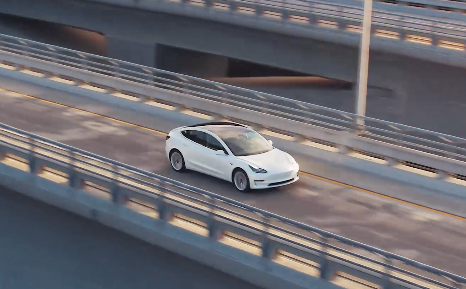 cancellations came from people burning out over having to wait an hour and a half to complete the order process online. During a quarterly earnings call yesterday, the company announced that it had burned through about $1.16 billion in cash during Q2 to keep the Model 3 factory on schedule along with Gigafactory battery production. Stocks closed yesterday with a 7.4% jump to $350.13 as investors remained enthusiastic.
cancellations came from people burning out over having to wait an hour and a half to complete the order process online. During a quarterly earnings call yesterday, the company announced that it had burned through about $1.16 billion in cash during Q2 to keep the Model 3 factory on schedule along with Gigafactory battery production. Stocks closed yesterday with a 7.4% jump to $350.13 as investors remained enthusiastic.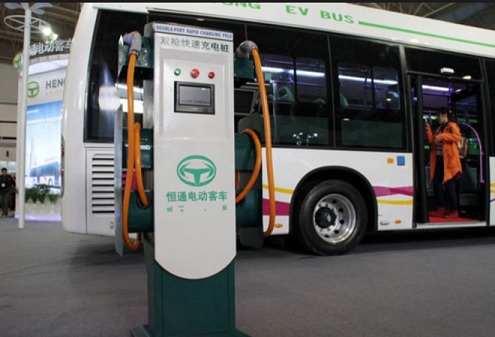 property and honoring trade practices between the nations. Senate Democratic leader Chuck Schumer was one of the three. Trump has been pressing China to cut steel production to cut oversupply and to rein in North Korea’s missile testing program. The Obama administration, while also concerned over high tariffs and equitable trade, had established strong relations with the country on vehicle electrification and renewable energy goals. Now it’s up to California and Gov. Jerry Brown to keep those goals going – electric cars, buses, and trucks. China is likely to adopt some version of California’s zero emission vehicle policy by the end of the year. But relations between the two nations could be a stumbling block.
property and honoring trade practices between the nations. Senate Democratic leader Chuck Schumer was one of the three. Trump has been pressing China to cut steel production to cut oversupply and to rein in North Korea’s missile testing program. The Obama administration, while also concerned over high tariffs and equitable trade, had established strong relations with the country on vehicle electrification and renewable energy goals. Now it’s up to California and Gov. Jerry Brown to keep those goals going – electric cars, buses, and trucks. China is likely to adopt some version of California’s zero emission vehicle policy by the end of the year. But relations between the two nations could be a stumbling block.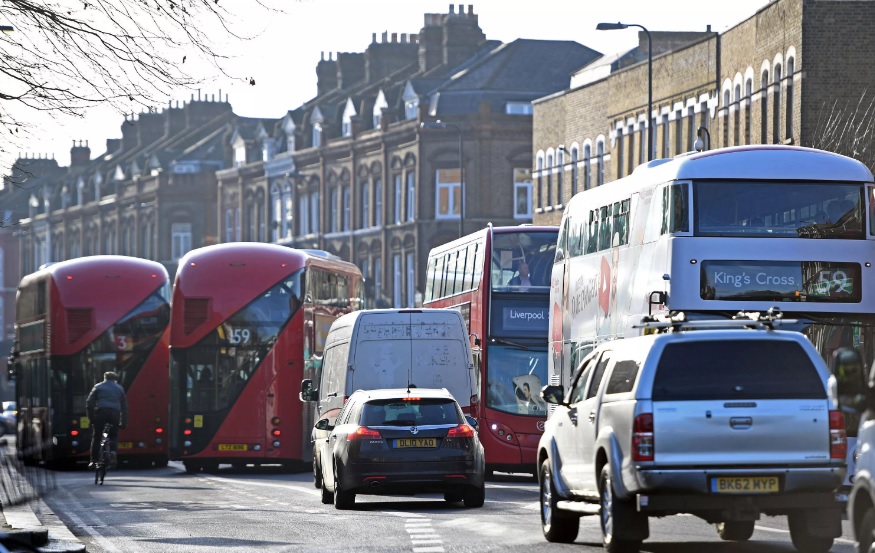 follows France, which decided to ban all fossil-fuel powered vehicles by 2040. The mayors of London, Paris, Madrid, Mexico City, and Athens are developing their own policies for clean air and climate change, would like to ban diesel vehicles. The British government has faced legal pressure from a series of lawsuits, and the national government has been taking steps to scrap diesel-powered cars. Nearly 200 million pounds (about $261 million) will go to local governments in the UK to help them restrict access by diesel-powered vehicles to extremely polluted roads. Battery electric vehicles will probably be the route chosen by the national government to replace gasoline and diesel powered cars.
follows France, which decided to ban all fossil-fuel powered vehicles by 2040. The mayors of London, Paris, Madrid, Mexico City, and Athens are developing their own policies for clean air and climate change, would like to ban diesel vehicles. The British government has faced legal pressure from a series of lawsuits, and the national government has been taking steps to scrap diesel-powered cars. Nearly 200 million pounds (about $261 million) will go to local governments in the UK to help them restrict access by diesel-powered vehicles to extremely polluted roads. Battery electric vehicles will probably be the route chosen by the national government to replace gasoline and diesel powered cars.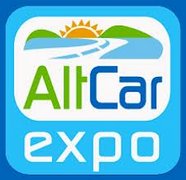 speaker panels on pressing topics for fleets, government officials, vehicle manufacturers, technology companies, and enthusiasts interested in the issues and trying out the vehicles. AltCar Expo offers the best Ride & Drive out there, with several green cars to drive and a few commercial fleet vehicles to see. With the Trump administration deciding to exit the Paris climate accord, leaders are looking for other channels to address the issues; that includes the role California is playing.
speaker panels on pressing topics for fleets, government officials, vehicle manufacturers, technology companies, and enthusiasts interested in the issues and trying out the vehicles. AltCar Expo offers the best Ride & Drive out there, with several green cars to drive and a few commercial fleet vehicles to see. With the Trump administration deciding to exit the Paris climate accord, leaders are looking for other channels to address the issues; that includes the role California is playing.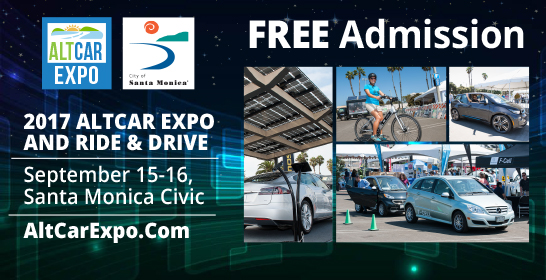
 reported Friday. The other five would be the Buick LaCrosse, Cadillac CT6, Cadillac XTS, Chevrolet Impala, and Chevrolet Sonic. GM declined to comment. Pressure from shareholders to increase sales may have GM tipping more to pickups, crossovers, and SUVs. It would be a shame to see, with the redesigned Volt doing well in sales – No. 3, close behind the Tesla Model S in the first six months of U.S. sales.
reported Friday. The other five would be the Buick LaCrosse, Cadillac CT6, Cadillac XTS, Chevrolet Impala, and Chevrolet Sonic. GM declined to comment. Pressure from shareholders to increase sales may have GM tipping more to pickups, crossovers, and SUVs. It would be a shame to see, with the redesigned Volt doing well in sales – No. 3, close behind the Tesla Model S in the first six months of U.S. sales.